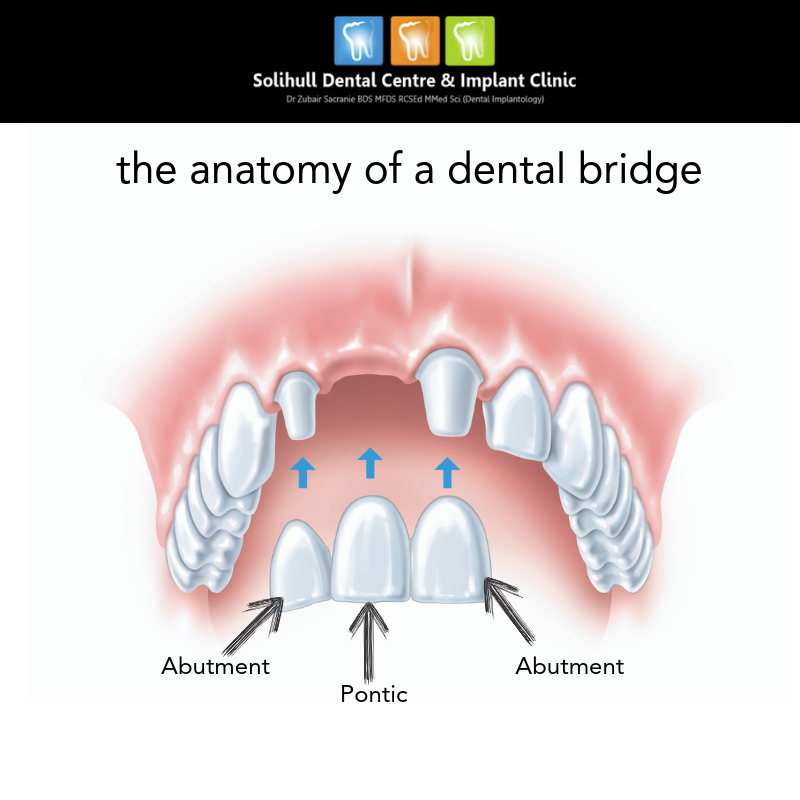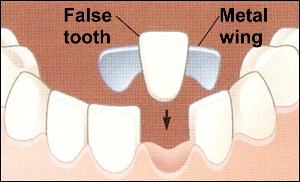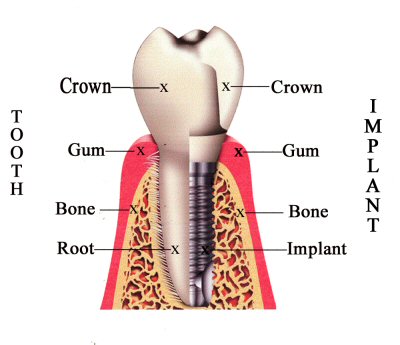When we talk about replacing missing teeth, the conventionally used options are removable dentures and teeth bridges. While these options have been used for many years to replace missing teeth, they have drawbacks. For example, removable dentures do not completely restore one’s ability to chew food and are prone to staining and fracture. Similarly, tooth bridges require the removal of healthy tooth structure from the supporting teeth for their attachment. More importantly, both these options had a limited service lifetime.
But, thanks to modern dentistry, a newer tooth replacement option is available, which is not only highly durable but also restores one’s chewing and speech efficiency, giving them a naturally beautiful smile. So say hello to dental implants!
Which Is Better, A Dental Bridge, Dental Implant, Or A Gap?
Let us consider what will happen if we don’t replace a missing tooth. As soon as a tooth is lost, the bone around it starts to degrade very fast, resulting in changes in one’s facial appearance. Secondly, the opposing tooth and the teeth adjacent to the missing tooth begin to creep into the gap, resulting in spacing between the teeth and misalignment. So, leaving a missing tooth unreplaced is not a good idea.
Now, let us discuss which is better; a bridge or dental implant. A bridge is a fixed prosthesis that rests on adjacent supporting teeth and fills the vacant gap using dental crowns. So, dental bridges require natural tooth removal. On the other hand, dental implants are embedded directly within the jawbone, just like natural teeth. As a result, they remain firmly anchored and support the prosthesis – such as a crown, denture, or bridge – that is attached to them. Furthermore, an implant is highly durable and safe for use in the oral cavity. In fact, an implant can last for a lifetime if it is looked after properly, So dental implants are better than bridges when it comes to tooth replacement.
When Would You Chose A Dental Implant Or A Bridge?
The latter should always be preferred when choosing between dental implants and teeth bridges. Why, because dental implants offer lifelike aesthetics, are durable, and restore one’s ability to eat and speak without difficulty. The only case when dental implants may not be suitable is when one is suffering from bone disease or has recently undergone cancer radiation therapy.
How Permanent Are Dental Bridges?
Like other dental prostheses, dental bridges have a limited lifespan. According to the Cleveland Clinic, the average life of teeth bridges is about 5 years. However, their life can be enhanced significantly if they are looked after properly through oral hygiene maintenance and regular dental checkup visits.
Can You Replace An Old Dental Bridge With An Implant?
Yes, it is possible to replace a bridge with an implant-supported prosthesis. However, the implant will only replace the missing tooth. But, the tooth structure removed from the healthy supporting teeth will need to be restored with a filling, with or without a crown. To fill the gap created by the missing tooth, your dentist will insert an implant that supports a zirconia crown.
Which Is Better, An Implant Or A Bridge If You Have Poor Gums?
Neither an implant nor a bridge is suitable for tooth replacement when there is underlying gum inflammation. In fact, dentists do not perform any treatment in the presence of gum disease. Instead, they will first treat the periodontal disease with oral hygiene instructions and professional teeth cleaning and only then proceed with tooth replacement with a bridge or an implant-supported prosthesis.
Are Implants Better Or A Bridge For A Molar Replacement?
Molars are our back teeth that are used for grinding. These teeth receive very heavy biting forces. Hence, your dentist will use a sufficiently strong and durable prosthesis to replace a missing molar tooth. Therefore, the best option to replace a back tooth is an implant-supported zirconia crown and not a bridge. Why? First, bridges need healthy tooth removal from the supporting teeth. Secondly, bridges are not as strong or durable as dental implants. So, implants are a better option for replacing molar teeth.
Can Dental Implants Cause Gum Disease?
Dental implants are made of high-quality titanium, highly durable, safe, and non-allergic. However, dental implants require the same oral hygiene care as one’s own teeth. If oral hygiene around dental implants is ignored, food impaction tends to occur around the implant-oral soft tissue margin, leading to an inflammatory condition called peri-implantitis. Such a condition can even lead to implant failure. Hence, optimal oral hygiene must be maintained around implants to avoid soft tissue inflammation.
Can You Get Dental Implants If Your Gums Are Infected?
It is not advisable to get dental implants with underlying gum disease. This is because gum disease causes the bones to degrade. As a result, they cannot anchor the implant and its prosthesis, leading to implant failure. The best practice is to treat gum disease first and then proceed with implant therapy.
Can Food Particles Get Lodged Between Implants And The Gums?
If oral hygiene maintenance is ignored, there are chances that food particles may get trapped between the implant and the oral soft tissues, causing inflammation. Therefore, oral hygiene around implants must be maintained through brushing, flossing, and regular dental checkup visits.
Is There Any Age Factor For Dental Implant Treatment?
Dental implants are generally placed in patients who have already grown all their permanent teeth, and their pubertal growth spurt is over. Apart from that, there is no upper age limit for getting implants. So you could get your missing teeth replaced with dental implants in your 80s or 90s, provided you’re in good health.
Are you fed up with your uncomfortable dentures or teeth bridges? If yes, it is time to say goodbye to them and say hello to a beautiful and lasting smile with dental implants. If you live in Solihull, Solihull Dental Centre and Implant Centre is your best option to get your teeth replaced with dental implants. So, book an appointment with us today and let us give you a smile you genuinely deserve.







